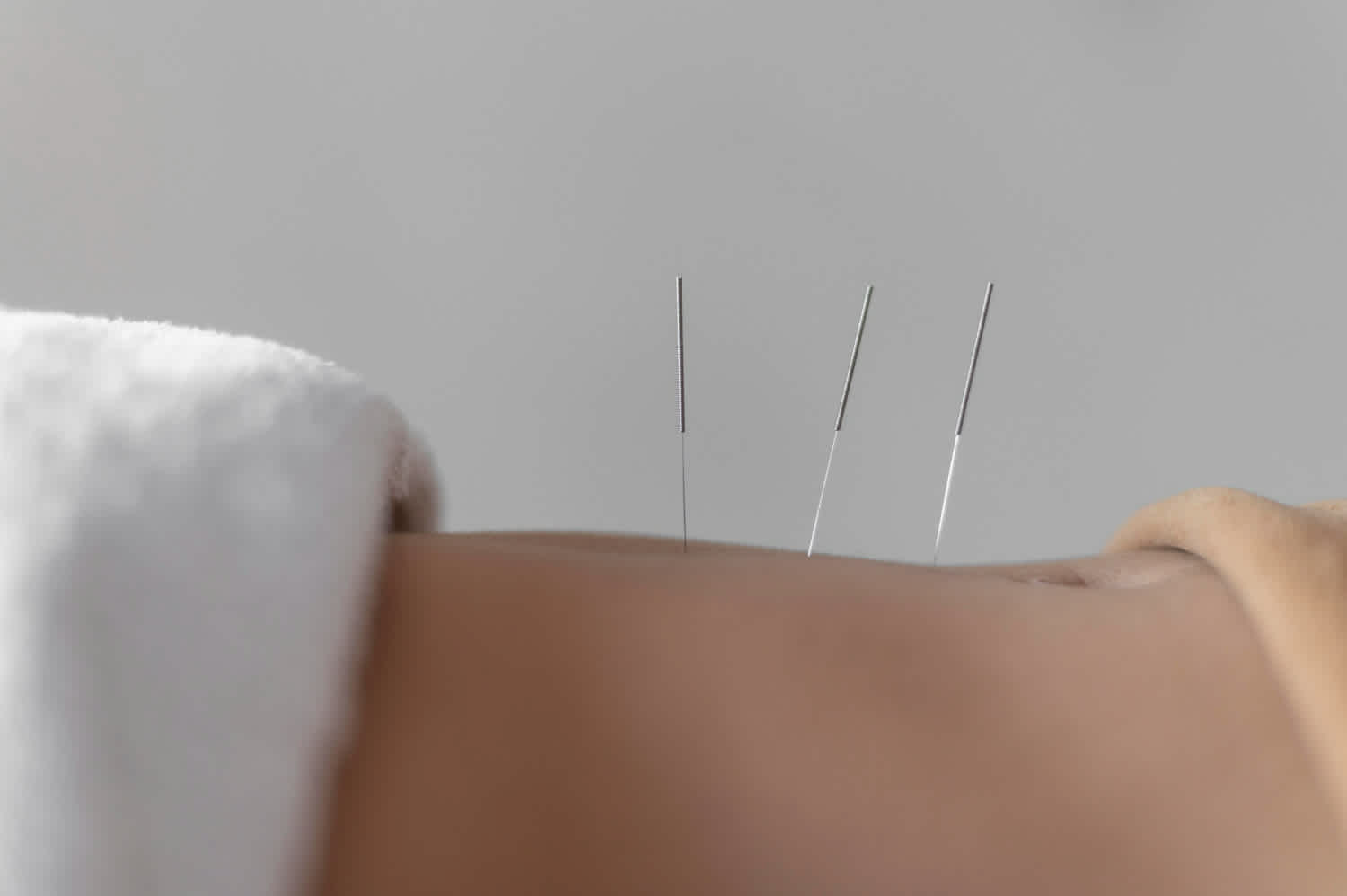As a healthcare provider, you might at times find yourself wondering whether or not you can legitimately provide your clients with other therapies. In this blog, we specifically look into whether or not Massage Therapists can do Dry Needling. Both are considered to be Complementary and Alternative Medicine (CAM), but do they need different qualifications and training?
So, can a Massage Therapist do Dry Needling? A Massage Therapist can practise Dry Needling as long as they have the relevant qualifications and are a member of a governing body. Level 4 Massage Therapists that studied an anatomy module can take a Dry Needling CPD course to qualify. Others would need to study a relevant 3-year course to qualify.
Read on to learn more on how to become a Dry Needling practitioner or Massage Therapist with Breeze Academy.
Can a Massage Therapist Perform Dry Needling?
Massage Therapists can perform Dry Needling provided that they have completed a level 4 foundation degree in Massage Therapy that includes an anatomy module, and a foundation-level Dry Needling course. They also need to be registered with an Acupuncture governing body and may need to pass a background check in some cases.
How to Become a Dry Needling Practitioner
It is easier for those with backgrounds (and qualifications) in healthcare to train in Dry Needling as they already have an understanding of anatomy. However anyone can become a Dry Needling practitioner. Below we outline the potential routes that Massage Therapists would need to take to become a qualified Dry Needling practitioner if they don’t hold a Level 4 qualification.
Qualifications
To become a Dry Needling practitioner, a Massage Therapist would need to hold a Level 4 qualification in Massage Therapy which includes an anatomy module. From here, they would then need to undertake a Foundation-level Dry Needling course. Once qualified, they can then legally and safely practise Dry Needling.
If you’re starting with no relevant qualifications, an alternative route is to study a 3-year relevant degree course. Not only will this provide you with all the skills and knowledge required to practise Dry Needling, but will also allow you to refer to yourself as an Acupuncturist - a protected term like Doctor or Nurse.
Other Considerations
Upon completion of relevant training, you will also need to register with a governing body before you can begin practising Dry Needling. In the UK, the largest such governing body is the British Acupuncture Council. In addition to this, you may also need to be licensed by your local council as it is a treatment that pierces the skin.
Breeze Academy also has its own register, the Healthcare Professional Standards Register that individuals can join once they have successfully completed relevant study.
Further Learning
Once you have completed a foundation-level Dry Needling course, more intermediate, advanced and specialist courses are available for further learning. These are often referred to as CPD courses (continued professional development). For example, Breeze Academy offers Dry Needling CPD courses in Advanced Skills, Women’s Health, Headaches, Neck and Shoulder Pain, and more.
Learn more about how to train in Acupuncture and Dry Needling in our dedicated blog.
Can a Dry Needling Practitioner Do Massage Therapy?
A Dry Needling practitioner can train to practise Massage Therapy by completing a Level 3 qualification in Massage Therapy. Learn more about qualifications, licensing and progression below.
How to Become a Massage Therapist
It’s much easier for a Dry Needling practitioner to become a Massage Therapist than the other way around. Here’s how:
Qualifications
In the UK, formal qualifications are not legally required to practise Massage Therapy. However, most employers and even clients will require them. A Level 3 Massage Therapy qualification is the minimum requirement to practise Massage in the UK. However, this qualification does not allow you to practise all elements of Massage Therapy. A Level 4 qualification is needed for more advanced skills such as soft tissue release, muscle energy techniques, trigger points.
Level 4 qualifications also allow you to screen and assess clients - you cannot do this with a Level 3 qualification and clients would need to be assessed before being treated by you.
Learn more about Massage Therapy qualifications in our dedicated blog, What Can a Level 4 Sports Massage Therapist Do?
Other Considerations
It’s not essential to belong to a governing body in Massage Therapy. However it is recommended as some employers will ask for this. Recommended institutions include the Federation of Holistic Therapists and International Institute for Complementary Therapists. Alternatively, individuals can also join Breeze Academy’s Healthcare Professional Standards Register.
Further Learning
Once qualified to Level 4, Massage Therapists have the option to complete further training in specialist areas such as Pregnancy Massage. Other CPD courses are also available to keep up to date with industry news and best practices.
Learn more about How to Become a Massage Therapist in our dedicated blog, where we go into more detail about qualifications, entry requirements, licensing and more.
Dry Needling Courses for Massage Therapists at Breeze Academy
Breeze Academy offers foundation-level Dry Needling courses for Level 4 Massage Therapists. Our courses are given at all major UK cities and provide you with everything you need to safely and effectively practise Dry Needling. We also offer more advanced and specialist courses if you wish to continue your development.
For Level 3 Massage Therapists, we offer a Level 4 Massage Therapy course that you can complete on your way to becoming a qualified Dry Needling practitioner.
If you’re unsure about what courses and qualifications you need to complete, get in touch with us today. Our team is more than happy to help advise.
